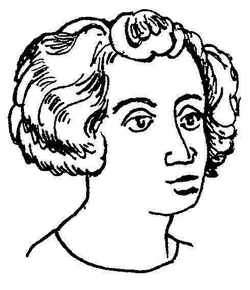Encyclopedia of Philosophy: ABELARD'S ETHICS
Publié le 09/01/2010

Extrait du document

Abelard was an innovator in ethics no less than in logic. He was the first medieval writer to give a treatise the title Ethics, and unlike his medieval successors he did not have Aristotle’s Ethics to take as a starting point. But here his innovations were less happy. Abelard objected to the common teaching that killing people or committing adultery was wrong. What is wrong, he said, is not the action, but the state of mind in which it is done. It is incorrect, however, to say that what matters is a persons’s will, if by ‘will’ we mean a desire for something for its own sake. There can be sin without will (as when a fugitive kills in self-defence) and there can be bad will without sin (such as lustful desires one cannot help). True, all sins are voluntary in the sense that they are not unavoidable, and that they are the result of some desire or other (e.g. the fugitive’s wish to escape). But what really matters, Abelard says, is the sinner’s intention or consent, by which he means primarily the sinner’s knowledge of what he is doing. He argues that since one can perform a prohibited act innocently – e.g. marry one’s sister unaware that she is one’s sister – the evil must be not in the act but in the consent. ‘It is not what is done, but with what mind it is done, that God weighs; the desert and praise of the agent rests not in his action but in his intention.’
Liens utiles
- Encyclopedia of Philosophy: ABELARD'S LOGIC
- Encyclopedia of Philosophy: ABELARD AND HÉLoÏsE
- Encyclopedia of Philosophy: Abelard, Peter
- Encyclopedia of Philosophy: al-Ghazali, Abu Hamid
- Encyclopedia of Philosophy: al-Farabi, Abu Nasr































